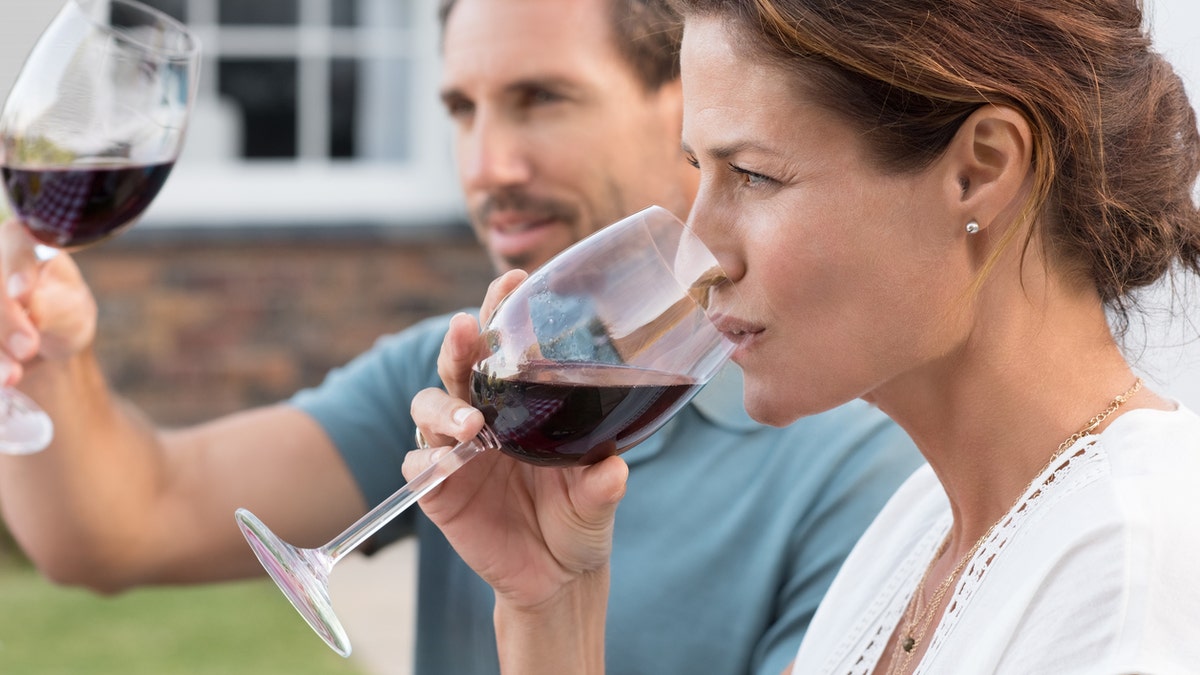
Portrait of young woman drinking red wine while man raising a toast. Mature couple enjoying drinks in the park. Couple enjoying picnic with wine. (iStock)
Next time your brain needs a challenge, skip the Sudoku and grab some wine.
Enjoying a glass of wine makes the grey matter in our brains work harder than it would any other human activity — like listening to music or solving a math problem — according to Gordon Shepherd, a neurologist at the Yale School of Medicine.
In his new book, “Neuroenology: How The Brain Creates The Taste of Wine,” Shepherd states that smelling and drinking wine engages our entire brain and requires “exquisite control of one of the biggest muscles in the body.”
5 UNEXPECTED HEALTH BENEFITS OF DRINKING ALCOHOL
Shepherd explains that wine molecules don’t actually have any flavor, and it’s our brains that create the sensation that we perceive as taste. The process is similar to how our brains see color.
Wine molecules stimulate thousands of our mouth’s taste and odor receptors, which create both a sensory and emotional reaction in our brain. All these signals spark different cognitive areas — including memory, pattern recognition and pleasure — which work together to deliver the wine’s “taste.”
“The taste is not in the wine; the taste is created by the brain of the wine taster” Shepherd writes. Factors including age, gender, the genetic makeup of our saliva and whether or not we’re depressed can also impact how we taste wine.
FOLLOW US ON FACEBOOK FOR MORE FOX LIFESTYLE NEWS
But tiny sips are key to a full-brain workout. Too big a gulp and “you’ve saturated your system,” Shepherd told NPR. But he also writes that spitting your sip out prevents you from fulling appreciating the flavor.
So, sip slowly and often — doctor’s orders.








































